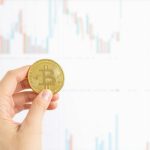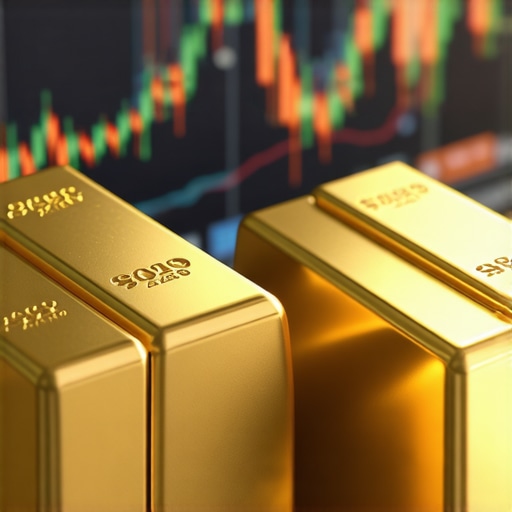Understanding the Relationship Between Global Events and Gold Prices
Gold has long been viewed as a safe haven asset, particularly in times of uncertainty. As an investor, understanding how global events influence gold prices is crucial for making informed decisions. From geopolitical tensions to economic crises, various factors can lead to fluctuations in gold’s value. This article will delve into the significant global events that impact gold prices, providing insights for investors looking to navigate the complexities of the market.
What Global Events Most Significantly Affect Gold Prices?
Several global events can affect gold prices, including:
- Geopolitical Tensions: Conflicts and tensions between nations often lead to increased demand for gold as a protective measure against economic instability.
- Economic Crisis: During financial downturns or recessions, investors typically flock to gold, driving its price higher.
- Inflation Rates: Rising inflation typically erodes the value of currency, prompting investors to seek gold as a hedge.
- Central Bank Policies: Decisions made by central banks, such as interest rate changes, can significantly influence gold prices. For example, lower interest rates often lead to higher gold prices.
According to the Investopedia, gold often serves as a hedge against inflation and currency fluctuations, making it a popular choice during times of economic uncertainty.
How Do Investors React to Global Events?
Investors often adjust their portfolios based on perceived risks and potential returns. For instance, in times of geopolitical unrest, many investors increase their allocation to gold to mitigate risk. This reaction can create a self-reinforcing cycle: as more investors buy gold, its price rises, leading even more investors to consider it a safe haven.
Moreover, gold prices can also be influenced by market sentiment. Positive news about economic recovery may lead to a decline in gold prices as investors move towards equities and other assets. Conversely, negative news can spark a rush to gold, driving prices up.
Conclusion
In conclusion, understanding the impact of global events on gold prices is essential for any investor looking to secure their financial future. By staying informed about geopolitical tensions, economic shifts, and central bank policies, investors can make strategic decisions regarding their gold investments. If you have insights or tips on navigating gold investments during global events, feel free to share in the comments below!
How Do Economic Indicators Influence Gold Prices?
Economic indicators play a significant role in influencing gold prices. Key metrics such as GDP growth, unemployment rates, and consumer confidence can signal the health of the economy. For instance, when GDP growth is sluggish or unemployment rates are high, investors may turn to gold as a safer investment option. These indicators often reflect broader economic conditions, prompting a shift in investor sentiment towards gold.
What Other Factors Should Investors Consider?
Alongside economic indicators, several other factors can impact gold prices:
- Currency Strength: The strength of the U.S. dollar inversely affects gold prices. A weaker dollar makes gold cheaper for foreign investors, potentially driving up demand.
- Geopolitical Stability: Areas of conflict or political instability can lead to increased gold purchases, as investors seek a reliable store of value.
- Market Speculation: Traders’ perceptions of future price movements can create volatility in the gold market. Speculative buying or selling based on market trends can lead to rapid price changes.
According to Wikipedia, gold investment is often seen as a hedge against various risks, including inflation and currency fluctuations, which reinforces its appeal during uncertain times.
Can Gold Prices Predict Economic Trends?
Many investors wonder if fluctuations in gold prices can serve as a predictor of economic trends. Historically, rising gold prices have been associated with economic uncertainty or declining market conditions. When investors rush to buy gold, it can signal a lack of confidence in other investment avenues. Conversely, falling gold prices may indicate economic stability or investor confidence in equities.
To illustrate, during periods of economic growth, gold prices may stabilize or decline as investors seek higher returns in stock markets. In contrast, when signs of recession emerge, many flock back to gold, driving prices up as demand increases.
Engaging with Gold Investment Strategies
If you’re considering investing in gold, it’s essential to develop a strategy that aligns with your financial goals. Whether you’re interested in physical gold, gold ETFs, or mining stocks, understanding the dynamics of the market can help you make informed decisions. For more insights on effective gold investment strategies, check out our article on gold investment strategies for 2025.
As you navigate the gold market, feel free to share your thoughts or experiences in the comments below. What strategies have you found effective in response to global events? Your insights could help others in their investment journey!
How Do Global Economic Indicators Impact Gold Prices?
Global economic indicators are critical in influencing gold prices, as they provide insight into the overall health of economies. Key indicators such as inflation rates, interest rates, and employment statistics can significantly affect investor behavior and, consequently, gold demand. For instance, when inflation rises, the purchasing power of currency diminishes, leading many investors to flock to gold as a hedge against inflationary pressures.
What Role Do Interest Rates Play in Gold Pricing?
Interest rates directly impact gold prices. When central banks raise interest rates, the opportunity cost of holding non-yielding assets like gold increases, often leading to a decline in gold prices. Conversely, when interest rates are low, gold becomes more attractive as an investment. A recent report by the Federal Reserve highlights how monetary policy, particularly interest rate decisions, can create ripples in the gold market, influencing both investor sentiment and physical demand.
How Does Market Sentiment Affect Gold Prices?
Market sentiment, driven by news and economic forecasts, can have a profound impact on gold prices. During times of uncertainty, such as political instability or economic downturns, investors typically increase their gold holdings, leading to higher prices. Conversely, positive news about economic recovery may lead investors to shift their focus to stocks, subsequently causing gold prices to drop.
Can Gold Prices Forecast Economic Trends?
Many investors ponder whether fluctuations in gold prices can serve as indicators of broader economic trends. Historically, rising gold prices have signaled economic uncertainty, prompting investors to seek out gold for its stability. During prosperous economic periods, gold prices may stabilize or decline as individuals search for higher returns in equities. This relationship has been observed throughout various economic cycles, reinforcing the idea that gold can serve as both a safe haven and a barometer of economic health.
Investing in Gold: Strategies for Success
For those interested in investing in gold, it’s essential to develop a sound strategy that aligns with personal financial goals. Whether considering physical gold, gold ETFs, or gold mining stocks, understanding market dynamics is crucial. For a deeper dive into effective gold investment strategies, explore our article on protecting your assets with gold.
Additionally, staying informed about global economic indicators and how they correlate with gold prices can enhance investment outcomes. As you navigate your investment journey, consider sharing your experiences and strategies in the comments below. Your insights could provide valuable perspectives for fellow investors!
How Market Sentiment Influences Gold Prices
Market sentiment is a pivotal factor that directly impacts gold prices. When investors perceive economic uncertainty—be it from political unrest, financial crises, or global health concerns—they often turn to gold as a safe haven. This tendency to flock to gold during turbulent times reinforces its position as a protective asset. For instance, during the COVID-19 pandemic, gold prices soared as investors sought security against market volatility.
What Are the Key Economic Indicators Affecting Gold Prices?
Several economic indicators play a crucial role in shaping investor sentiment and gold pricing. These include:
- Inflation Rates: As mentioned earlier, rising inflation diminishes the purchasing power of currency, prompting investors to consider gold as a hedge.
- Interest Rates: Changes in interest rates can significantly affect gold demand. Lower rates make gold more attractive as an investment since the opportunity cost of holding gold decreases.
- Employment Data: Unemployment rates can signal economic health. Higher unemployment often leads to increased gold buying as investors seek stability.
- Consumer Confidence: This metric reflects how optimistic consumers are about the economy’s prospects. When consumer confidence dips, gold demand typically increases.
According to the Bureau of Labor Statistics, monitoring these indicators can provide valuable insights into when to invest in gold, making it essential for investors to stay informed about economic trends.
Exploring Gold Investment Types: Which Is Right for You?
As you consider investing in gold, it’s important to choose the type of investment that aligns with your financial goals. The primary forms of gold investments include:
- Physical Gold: This includes gold bars, coins, and jewelry. Physical gold is tangible, providing a sense of security but also involves storage and insurance costs.
- Gold ETFs: Gold exchange-traded funds allow investors to buy shares in a fund that holds physical gold. This option provides liquidity and ease of trading without the need for physical storage.
- Gold Mining Stocks: Investing in gold mining companies can offer exposure to gold prices without the need to hold physical gold. However, these stocks can be influenced by factors beyond gold prices, such as operational efficiency and management decisions.
Choosing the right type of gold investment depends on your risk tolerance, investment horizon, and market knowledge. For more detailed insights on selecting the best gold investment for your portfolio, check out our article on how to choose the best gold investment.
Conclusion: Stay Informed and Engage with the Gold Market
In conclusion, understanding how market sentiment and economic indicators influence gold prices is essential for making informed investment decisions. Gold continues to be a viable option for investors looking to diversify their portfolios amid uncertainty. If you have any insights or experiences regarding gold investments during changing economic conditions, we encourage you to share your thoughts in the comments below. Your perspectives can contribute to a richer discussion and help fellow investors navigate the gold market effectively!
Frequently Asked Questions (FAQ)
What factors should I consider when investing in gold?
When investing in gold, consider factors such as your investment goals, risk tolerance, market conditions, and the type of gold investment (physical gold, gold ETFs, or mining stocks) that suits your strategy. Understanding economic indicators and global events can also guide your investment decisions.
How do gold ETFs work?
Gold ETFs (exchange-traded funds) allow investors to buy shares in a fund that holds physical gold. They offer an easy way to invest in gold without having to store the metal physically. Gold ETFs track the price of gold and provide liquidity, making them a popular choice for many investors.
Is physical gold a good investment?
Physical gold can be a good investment as it provides a tangible asset that often holds value during economic downturns. However, it also comes with costs for storage and insurance, which investors should consider. It’s important to weigh these factors against the potential benefits of holding physical gold.
How can global events impact gold prices?
Global events such as geopolitical tensions, economic crises, and changes in central bank policies can significantly impact gold prices. Investors often flock to gold during uncertain times, driving up demand and prices. Staying informed about these events can help you make strategic investment decisions.
What are the risks associated with investing in gold?
Investing in gold carries certain risks, including market volatility, changes in economic conditions, and fluctuations in demand. Additionally, the price of gold can be influenced by factors such as currency strength and interest rates. Investors should conduct thorough research and consider their financial situation before investing.
How do I determine the right time to invest in gold?
Determining the right time to invest in gold involves analyzing market trends, economic indicators, and global events. Monitoring inflation rates, interest rates, and consumer confidence can provide useful insights. It’s also beneficial to stay updated on news that may affect gold prices.
Can gold be included in an investment portfolio?
Yes, gold can be a valuable addition to an investment portfolio. It often serves as a hedge against inflation and economic uncertainty. A diversified portfolio that includes gold can help balance risks and enhance overall returns.
What is the relationship between gold prices and inflation?
Gold prices typically rise during periods of high inflation as investors seek to protect their purchasing power. Gold is often viewed as a hedge against inflation, making it an attractive investment when inflation rates increase.
How can I sell my gold investments?
You can sell gold investments through various channels, including gold dealers, online platforms, or at auctions. For physical gold, ensure you have proper documentation and consider getting a professional appraisal to determine its value before selling.
Authoritative Sources
Here are some trusted external sources that provide valuable information on gold investments:
Investopedia: A comprehensive resource for financial education, Investopedia offers articles and insights on gold investment strategies and market trends.
The World Gold Council: This organization provides in-depth research and analysis on gold demand and supply, making it a reliable source for investors looking to understand the gold market.
Federal Reserve: The Federal Reserve’s reports on monetary policy and interest rates are crucial for understanding factors that influence gold prices.
Bureau of Labor Statistics: This source provides valuable data on inflation rates and employment statistics, which are essential for analyzing economic indicators affecting gold investments.
Conclusion
In conclusion, understanding the dynamics of gold prices and the factors influencing them is crucial for making informed investment decisions. By considering economic indicators, global events, and the various types of gold investments available, you can navigate the gold market effectively. Whether you choose to invest in physical gold, gold ETFs, or mining stocks, staying informed will empower you to make strategic choices that align with your financial goals. We encourage you to share your thoughts and experiences regarding gold investments in the comments below, and don’t forget to explore our related articles for more insights!








![Is Recycled Gold Impacting the 2026 Price Floor? [Analysis]](https://buyingoldnow.com/wp-content/uploads/2026/02/Is-Recycled-Gold-Impacting-the-2026-Price-Floor-Analysis.jpeg)
